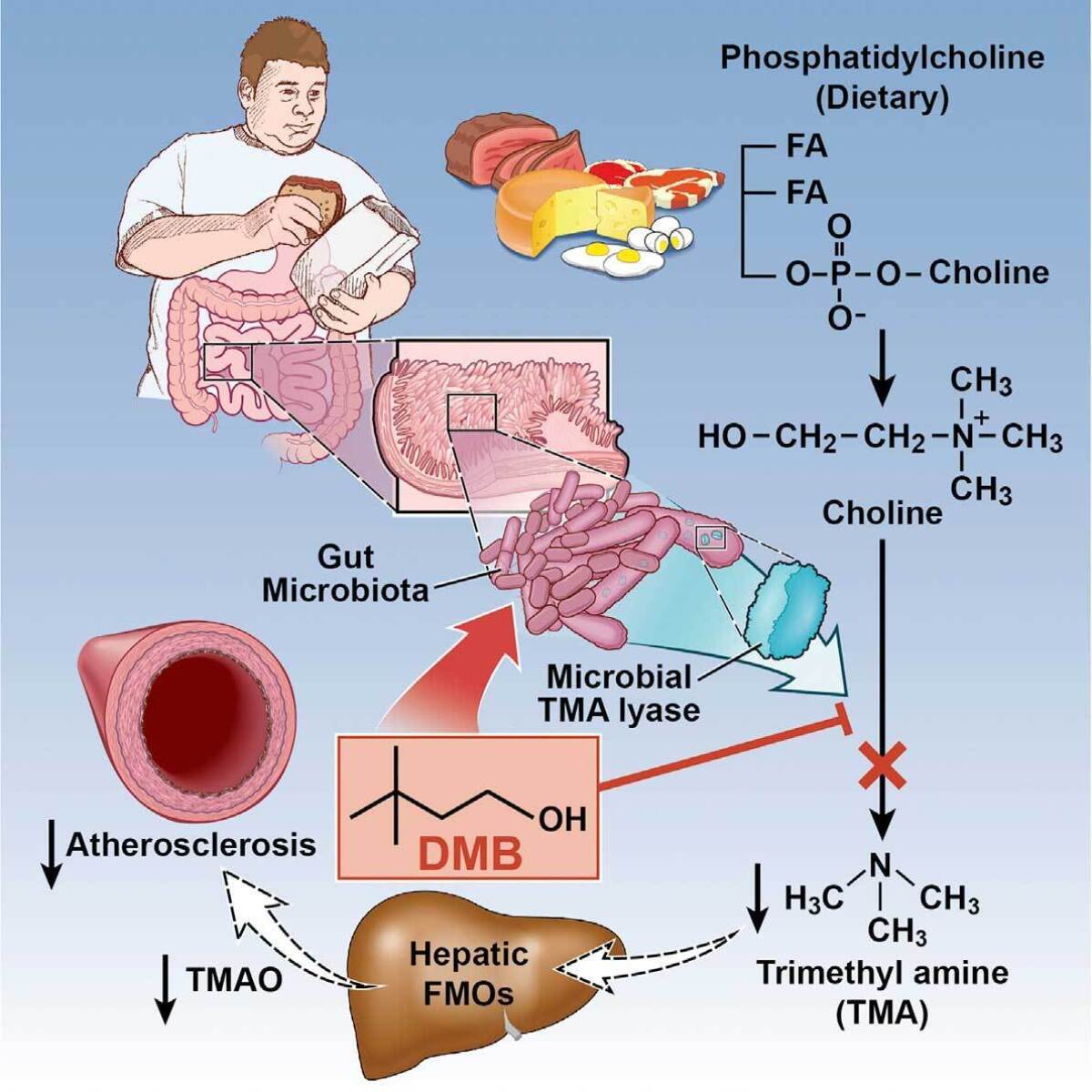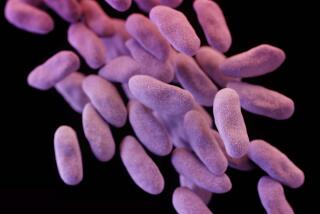Could neutralizing some gut microbes prevent heart disease?

As some microbes in the gut break down, the chemicals they produce promote the growth of heart-attack-causing plaque in the arteries. Neutralizing that harmful byproduct might be a way to reduce heart disease, new research indicates.
- Share via
Here’s a finding that gives new meaning (and a gender-neutral twist) to the adage “the way to a man’s heart is through his stomach”: New research suggests that neutralizing the breakdown of certain microorganisms that colonize the human gut may prevent heart disease.
Followers of the burgeoning science of the gut microbiome know that the population of bacteria, protozoa and viruses that inhabit the gut influences our health well beyond the gastrointestinal tract. Studies suggest that immune function, mood and cognition, and metabolism all can be affected by changes to our gut microbiota.
The latest research builds on a finding of yet another far-flung impact of gut microorganisms: atherosclerosis, the buildup of artery-clogging plaques that can break off and cause heart attacks.
Join the conversation on Facebook >>
When we eat foods such as eggs, meat and high-fat dairy products, a group of microorganisms in our guts gets to work to break them down. The result is trimethylamine, which, in turn, is set upon by a group of liver enzymes. What emerges from that intestinal soup is a byproduct called trimethylamine N-oxide (TMAO for short).
High levels of TMAO are often seen in people with heart attacks and signal that arteries may be narrowed in people who haven’t had a heart attack.
Writing in the journal Cell, researchers from the Cleveland Clinic and UCLA’s division of cardiology suggest that disrupting the cascade of events that results in the production of TMAO might also prevent the kinds of fatty buildup in the arteries that leads to heart disease.
They came up with a chemical lookalike to choline, a common chemical compound that plays a key role in processing fatty acids. The lookalike chemical, called DMB, suppresses the first step in the lengthy process of TMAO production. Both in laboratory tests and in mice (where researchers added DMB to the drinking water), they saw that DMB drove down the amount of triethylamine available for liver enzymes to turn into artery-clogging TMAO.
In the study, mice were fed chow that typically doubles fatty buildup in the arteries. Among those mice that got DMB in their water, arterial buildup was significantly reduced; their arteries looked almost like those of normal, healthy mice, the researchers found.
The researchers called the technique “drugging the microbiome” — essentially altering the way the gut’s microbes typically work together — to counter the ill effects of fatty diets. And their study provides “proof of concept,” they wrote, that doing so might complement efforts to help humans who cling to their cheeseburgers, ice cream and bacon-and-egg breakfasts to do so with less damaging effects on their arteries.
Follow me on Twitter @LATMelissaHealy and “like” Los Angeles Times Science & Health on Facebook.
MORE FROM SCIENCE
Cancer: More than just bad luck?
Sobering statistics: Teen drinking continues to fall, study shows
Climate change: Greenland Ice Sheet is shrinking at high rate





